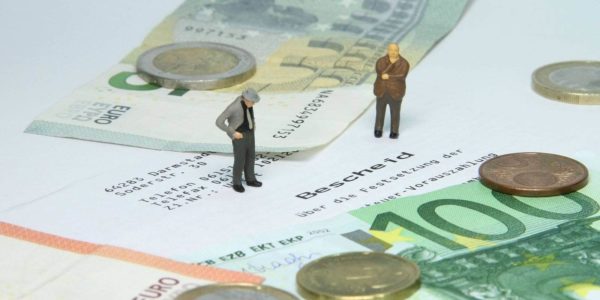
Sellers have always known that selling a home involves various costs that impact the final profit from the sale. These expenses include real estate agency fees, legal fees, and mortgage cancellation fees, along with several often-overlooked smaller administrative costs.
These might encompass fees for obtaining an Occupancy Certificate (Cédula de habitabilidad) and an Energy Performance Certificate (Certificado de la eficiencia energética), as well as settling any outstanding local Property Taxes (Impuesto sobre bienes inmuebles).
Looking to sell your house or apartment in Barcelona? Our team of professionals can help you sell faster. Click here for more information:
Sell your appartment with Bcn Advisors
Additionally, there is the significant matter of taxes. When you sell a property in Spain, you are responsible for paying two types of taxes: the national Capital Gains Tax (Impuesto sobre la Ganancia Patrimonial) and the municipal Capital Gains Tax (Impuesto sobre el Incremento de Valor de los Terrenos de Naturaleza Urbana, IIVTNU, also known as the Plusvalía Tax).
National Capital Gains Tax
The national Capital Gains Tax is collected by the National Tax Office and is based on the net profit made from selling a property. This profit is calculated by deducting the original purchase price (including VAT, Land Registry fees, property transfer tax, and legal and notary fees) from the final sale price (minus any costs incurred during the sale). For Spanish tax residents in 2024, the tax rate starts at 19% for the first €6,000 of profit and increases to 21% for gains between €6,000 and €50,000, 23% for gains between €50,000 and €200,000, and 27% for any profit exceeding €200,000.

There are several exceptions and strategies that can help avoid paying Capital Gains Tax. For instance, if you reinvest the proceeds from the sale of your property into purchasing another home that will serve as your sole, main residence, you may be legally exempt from paying Capital Gains Tax. Additionally, if you are over 65 years old, you are not required to pay Capital Gains Tax, provided that you have lived in the property as your sole, main residence for at least three years prior to the sale.
Plusvalía Tax
Plusvalía Tax is a municipal tax paid to the local council, calculated based on the increase in the official value of the land between the purchase and sale dates.
As of November 10, 2021, the calculation method for this tax was revised. This change was prompted by numerous property owners who were required to pay the tax even when the value of the land their homes were built on had not increased. This led to a significant number of official complaints from sellers who argued that they had been unfairly charged by local councils.
Prior to the changes in November 2021, the taxable base for Plusvalía Tax was calculated by multiplying the cadastral value of the land—an official value assigned to each property by the Spanish administration, based on data from the Land Registry—by the number of years you had owned the property (up to a maximum of 20 years). This figure was then multiplied by a coefficient set by the local council.
The maximum rates for this coefficient varied depending on the municipality. Typically, they were 3.7% for properties owned between 1 and 5 years, 3.5% for up to 10 years, 3.2% for up to 15 years, and 3% for up to 20 years.
The calculated amount was then subject to a tax rate determined by the local municipality, with a maximum allowable rate of 30%.

The new rules are considered much fairer, as the previous system did not account for the actual profit made from the sale, leading to situations where tax was paid even when the land’s value had decreased. Now, homeowners have two options for how the tax is calculated, allowing them to choose the method that is most advantageous for their specific situation:
According to the methods
‘Objective’ method
This method is similar to the previous system, where the taxable base is determined by multiplying the value of the land at the time of sale by a coefficient based on how long the property has been owned. The coefficient varies by local council but is capped at 0.14% for properties owned for less than 12 months and 0.45% for properties owned for more than 20 years. The lowest coefficient, 0.08%, applies to ownership periods between 10 and 13 years, benefiting those who purchased properties during the financial crisis (2008–2011).
The tax is then calculated using a rate set by the local council, which cannot exceed 30%.
‘Real’ method
Property sellers now also have the option to be taxed on the ‘real’ increase in the value of the land. In this case, the taxable base is calculated by multiplying the actual increase in property value by the percentage of the cadastral value of the land relative to the overall cadastral value at the time of sale.
Choosing the best method depends on individual circumstances, including the length of ownership and the coefficients applied by the local council. However, the new system ensures that no tax is due if a property is sold at a loss.
Recent Updates to Plusvalía Tax Rates and Coefficients
Since the last update, there may have been new changes to the Plusvalía Tax rates and coefficients set by local councils. It’s important to check for any recent legislative updates or adjustments in the coefficients that could impact the calculation of the tax. Staying informed about these changes can help you better understand your tax obligations when selling a property.
Online Tools and Calculators for Plusvalía Tax
Nowadays, many municipalities and financial websites offer online calculators to estimate Plusvalía Tax before you sell your property. These tools can provide a preliminary calculation of the tax based on current rates and coefficients, helping you plan more effectively. Utilizing these calculators can give you a clearer picture of potential tax liabilities and assist in your financial planning.
Online Tools and Calculators for Plusvalía Tax
Nowadays, many municipalities and financial websites offer online calculators to estimate Plusvalía Tax before you sell your property. These tools can provide a preliminary calculation of the tax based on current rates and coefficients, helping you plan more effectively. Utilizing these calculators can give you a clearer picture of potential tax liabilities and assist in your financial planning.
Additional Tax Exemptions and Incentives
There may be new tax exemptions, deductions, or incentives available for property sellers in 2024. This could include programs for energy-efficient home improvements or other sustainability initiatives that might affect your tax burden. Exploring these options could potentially reduce your tax liability or offer financial benefits when selling your property.
Considerations for Foreign and Non-Resident Sellers
Foreign and non-resident property sellers face specific regulations and tax obligations when selling property in Spain. Understanding these rules is essential for managing tax responsibilities and ensuring compliance. This section provides insights into the unique considerations for non-resident sellers, including potential tax implications and required documentation.
Current Trends in Land Valuation for 2024
The valuation of urban land has seen significant changes recently. This section offers an overview of current trends in land valuation, highlighting how recent developments and market dynamics might affect the Plusvalía Tax. Staying updated on these trends can help you better assess the value of your property and the associated tax implications.
Tips for Preparing Your Property for Sale in 2024
Preparing your property for sale involves more than just setting a price. In 2024, consider updating your home to meet current buyer expectations, including sustainability and technology features. This section provides practical tips for getting your property market-ready, including suggestions for renovations, staging, and leveraging technology to attract potential buyers.



 How to Successfully Sell My Apartment in La Bonanova? A Guide for Property Owners
How to Successfully Sell My Apartment in La Bonanova? A Guide for Property Owners
 How to Sell a Flat in Sarrià: A Guide for Property Owners
How to Sell a Flat in Sarrià: A Guide for Property Owners
 Tips for selling a property in L’Antiga Esquerra de l’Eixample (Eixample’s left side)
Tips for selling a property in L’Antiga Esquerra de l’Eixample (Eixample’s left side)
